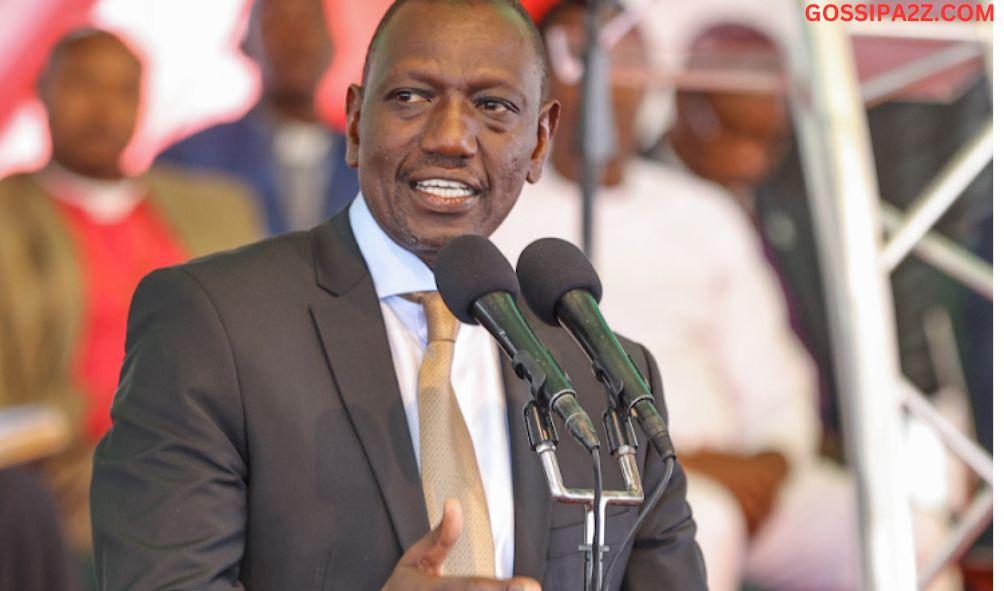Ruto Slams Rich Kenyans After Criticism for Changing HELB Model
President William Ruto lashed out at a group of affluent and salaried Kenyans who criticized his revised model for distributing Higher Education Loans Board (HELB) funds to college students.
On Sunday, while attending a church service in Riruta, the Head of State revealed that he had been informed of discontent from affluent individuals regarding his new HELB formulas.
In the new formulas, the Head of State had revised university fees upwards and altered the eligibility criteria for student funding. Some students would receive a full scholarship, while others would be required to pay out of pocket or obtain student loans.

“We’ve added money to educate our TVET and University students. We have decided that we will not send money to universities for the students, we shall give the students scholarships,” he explained.
“We will figure out the needy students so that we can give them 100 percent scholarships. Kenya is for all of us and we must factor in everybody.”
Ruto maintained, however, that the new formulas were aimed at children from impoverished households. The new funding will support students in both higher education and technical and vocational education and training (TVET).
“There are leaders who claim the model demands students to foot the fees in universities. Listen, the people I want to pay their full school fees are the children of these wealthy people and those with a salary. (The fees) is not a lot of money, it is Ksh25,000 per semester,” he added.
ALSO READ:
Nyahururu: Protests After Matatu Terminus Land Allegedly Grabbed
Police Arrest 3 in Lavington for Discussing Palestine-Israel War
Talks won’t bear fruits if the Ruto team lacks honesty – Karua
“You (wealthy people) used to pay Ksh200,000 school fees for students in academies and expensive high schools yet you complain about paying Ksh25,000 in the university.”
In May, after receiving recommendations from the Education task force headed by Professor Raphael Munavu, the Head of State announced that universities would no longer receive the per-student capitation.
“Universities and TVETS will no longer receive block funding in the form of capitation based on a Differentiated Unit Cost. Funding to students shall combine scholarships, loans, and household contributions on a graduated scale,” Ruto stated at the time.
Later, Education CS Ezekiel Machogu noted that several criteria will be taken into account when determining which students will receive full scholarships and which will be eligible for loans.
“The means testing instrument is very broad. It has 8 variables which have been used over the years and it is being strengthened, linked to other databases so that the results are more valid and reliable,” he explained.
The means test will take into account parental background, gender, course type, previous school type, educational expenditures, family size and composition, marginalization, and impairment.
In addition, the PS stated that university course financing will be based on four criteria: performance and program selection, household income bands, affirmative action, and government priority areas.
Furthermore, vulnerable students will receive more grants and fewer loans, while able students will receive more loans and fewer grants.
The government will provide 59% in grants, and 34% in loans, and the pupil will be responsible for only 7%.

Ruto Slams Rich Kenyans After Criticism for Changing HELB Model
